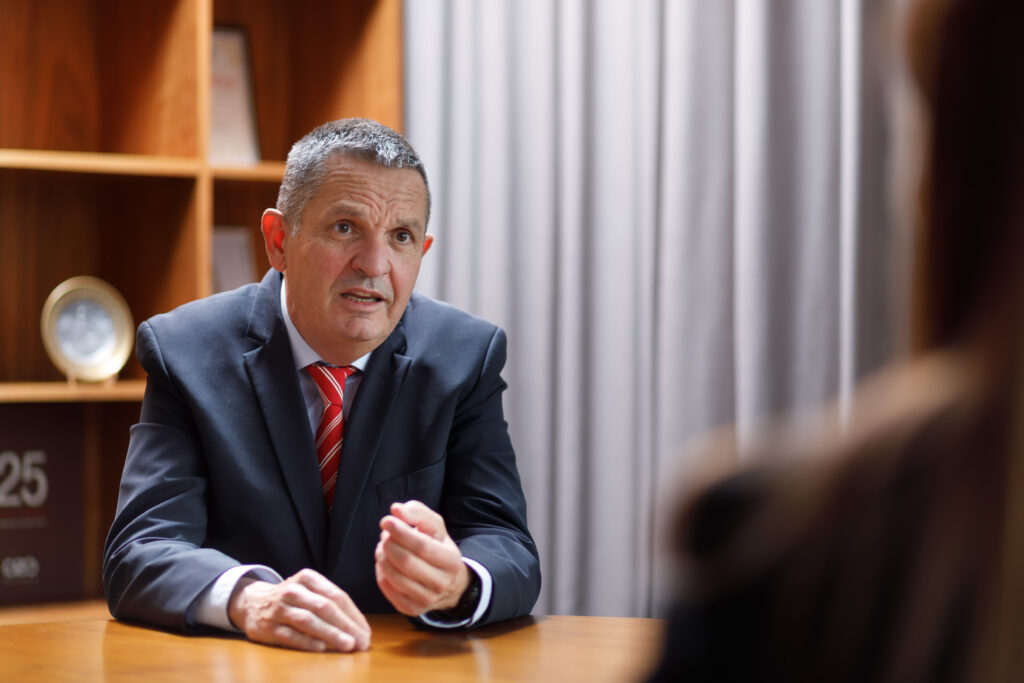
Gilles Mettetal, a member of the Board of Directors of Astarta, became a speaker of the webinar “Agricultural Investing for Social and Environmental Impact: Building the Ukrainian Story”, organized as part of the Chapter Zero Ukraine and Caucasus initiative and dedicated to ESG investing in agriculture.
Discussing the prospects and challenges of ESG investing in the agricultural sector in Ukraine and globally, Mr Mettetal mentioned that the success story that took place in Ukraine early in the century is remarkable, unique for the world and probably has not been seen before.
– Increasing standards is one of the reasons why Ukraine is so successful, having moved from the situation when it was barely self-sufficient in food to be one of the biggest exporters globally. The impact of the russian invasion has shown how Ukraine is essential for the global markets today.
-One more reason for that success was the dynamic private sector that has increased its standards not only to be good for the environment but also to be more resilient, more profitable and to attract financing from international institutions. Suppose I take the example of Astarta. Astarta started to invest in energy-efficiency equipment long beforehand. As a result, it had a huge impact on carbon emissions, but it also significantly impacted the company’s profitability. Astarta invested in a biomass conversion plant. Raising the standards could make companies more efficient and environmentally friendly. Modernizing agriculture by buying new machinery means losing much less harvest and food. So that is a very important aspect.
-Astarta has emphasized the environment as one of its objectives, mainly because this company impacts its country as a primary objective. It is one of the companies that reinvested everything in developing the company and developing its country’s economy. It has also been a reason why this business is so successful.
-And the success story in Ukraine early in the century is remarkable, unique worldwide and probably has not been seen before. That is why such companies have also reacted very quickly to the invasion, to continue exporting products and supplying food to the rest of the world, not in the way it should be but in a remarkable way. Such companies are managing to survive despite not receiving any support from anybody.
-Impact of the war. I am shocked that the private sector received so little support after the war started. Out of 50bn of the support committed to Ukraine, less than two billion goes to the private sector and private companies, which need to survive and operate to keep the country going. It is essential to ensure that more focus will be on supporting businesses. They all need significant support in restoring facilities, de-mining, and access to the market.
-The other point is the impact of agriculture on the environment globally. If you add food, one-third of the greenhouse gas emissions come from agriculture and food. One of the important reasons is that 70% of the agricultural land in the world is used not to feed humans but to feed animals. And how the world will manage animals and feed them will be very important. One aspect that is a very strong emphasis in Asia, for example, is alternative protein. Another example is Astarta which has the project of soybean protein concentrate production initially for animal feed but potentially for human consumption. It is an important area where Ukraine should be looking yet and has a very strong potential advantage. So we need to invest in more value-added products and more processing also. And it should be the focus in the future.
-European farming is not perfect either. By far, there are many problems with compliance with regulations. Compliance with animal welfare is important and is not met in most countries. So, I would say that Ukraine has better standards than most European agriculture. The other aspect is that Ukraine can produce and sell efficiently and competently. Most of the Western and ‘European agriculture is struggling to keep competition. An example of my country (France). Today, half of the chicken is imported, while we were one of the biggest exporters globally. Why? Because some companies, including the Ukrainian ones, make products with good standards and are much cheaper than any European producer. The interest of European investors is to develop synergies between Ukraine and Europe to help improve their productivity and efficiency. Ultimately, it adds more value and results in higher technology products that Ukraine may not always be able to do. We should put higher emphasis on synergies between the two agricultural sectors than competition between the two.
